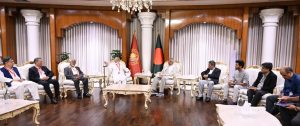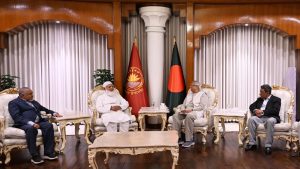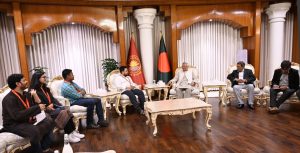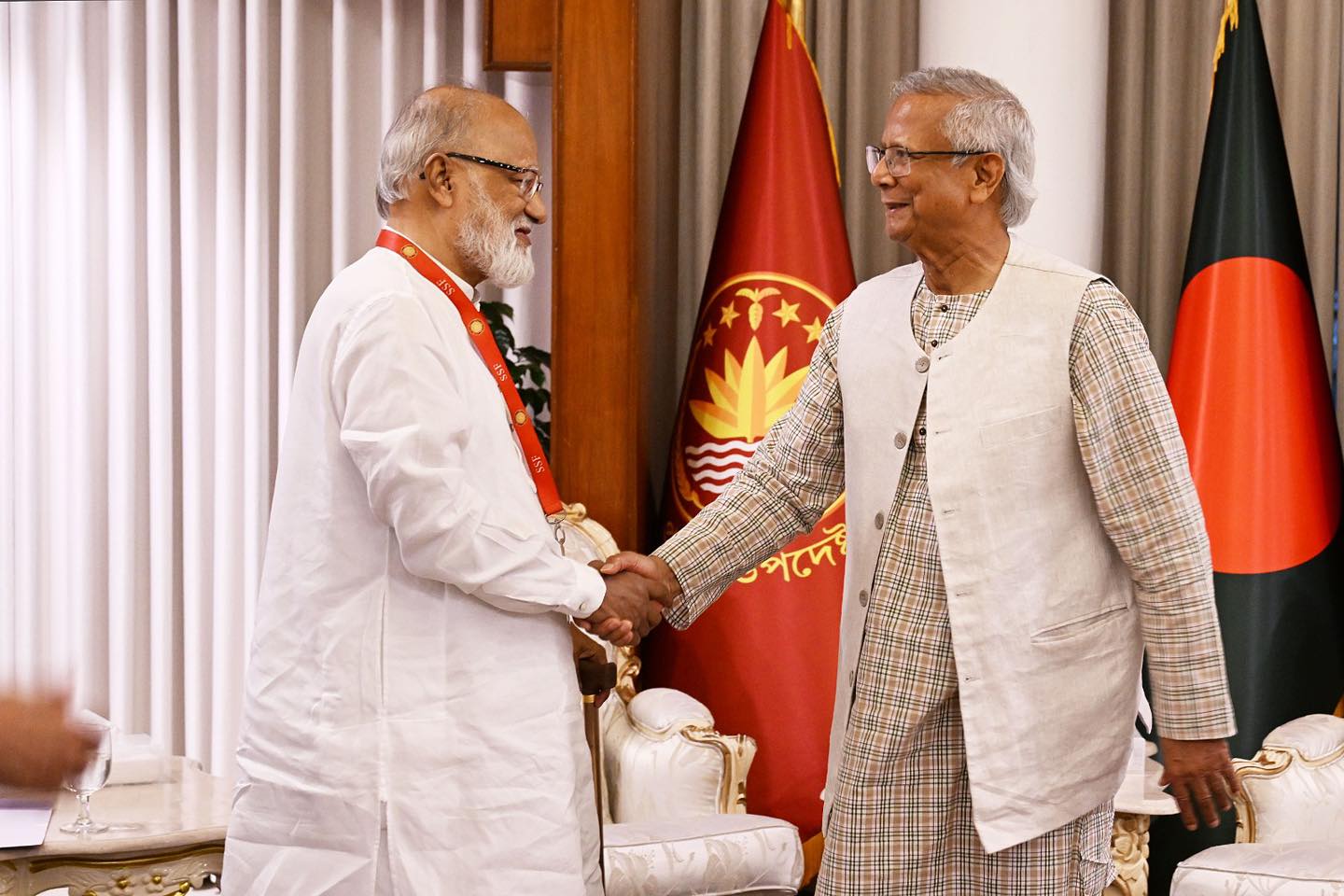Bangladesh, the land of six seasons, now seems caught in an unfamiliar one—where spring no longer arrives and only a bleak, uncertain autumn lingers. The political winds are dry, the air thick with anxiety, and the leaves of public trust fall silently to the ground.
Once a fertile ground where the seeds of democratic hope were sown, the nation now finds itself shrouded in dust and doubt.
The much-anticipated political dialogue, convened by Chief Adviser Dr Muhammad Yunus and his interim government, has become a metaphor for this withering season—one where uncertainty eclipses expectation.
Dr Yunus’s arrival as head of the interim administration was once greeted with a cautious but genuine hope. Yet today, that promise feels adrift—like a paper boat floating without direction on the turbulent waters of mistrust.
No longer is the question merely when the election will be held. The deeper concern is this: Who holds the nation’s confidence? Who will serve as the true guide in Bangladesh’s democratic transition?

Following Saturday’s tense round of talks, senior BNP leader Khandaker Mosharraf Hossain issued a pointed warning: If there is no roadmap for national elections by December, autocracy will return.
His words not only conveyed urgency but a veiled accusation—that the delay and indecision could erode political stability, for which the government and its advisers must bear responsibility.
Yet beneath these declarations lies a more troubling current—allegations surrounding key figures in the advisory council.
Critics point to the roles of National Security Adviser Khalilur Rahman and student leaders-turned-advisers Asif Mahmud and Mahfuz Alam, raising suspicions of covert influence and foreign interests.
Are these mere conspiratorial whispers, or signs that the interim government may be drifting from its neutral mandate?

Jamaat-e-Islami, as always, has played its cards with strategic ambiguity.
While expressing concern over trust, it demanded elections before Ramadan, but with a lenient tone on timelines. Still, one wonders—do they truly seek reform, or merely a foothold in a transitional order?
The National Citizen Party (NCP) went further, calling for the past decade of elections under Sheikh Hasina to be formally declared null and void. It is, in essence, a call for rewriting the constitution raising the stakes of the dialogue far beyond electoral logistics.
This refusal to trust the Election Commission or the entire electoral architecture of the past casts a long shadow over the legitimacy of the current political framework. It weakens the very platform on which this interim government stands.
Just before the dialogue commenced, the Chief Adviser and his council issued a joint statement alleging foreign conspiracies and sabotage by defeated forces. They hinted—perhaps not so subtly—that if governing becomes impossible, the government would publicly explain its position and consider its next course of action.

Analysts interpret this as either a calculated retreat or a political feint—a veiled threat of resignation or a last-minute bid to shift pressure before negotiations.
Still, the real question remains unanswered: Is Dr Yunus truly preparing to exit? Or does he still believe that the warring political factions can be brought together under his guardianship? Judging by the posture and rhetoric of key BNP figures, such a reunion seems unlikely.
What Bangladesh faces today is not a crisis of calendars or committees—but of credibility. The country does not need just a roadmap; it needs a guide worthy of collective trust.
In this fragile moment, a new national consensus is essential—one where principles, not personalities, lead the way.
The country is yearning for a brave new dialogue, a political pact where accountability replaces rhetoric. The urgency is not just about when the election is held—but whether we leave behind a foundation of trust strong enough for the next generation to build upon.
Because without belief in leadership, a state becomes a mere geographic shell. And we all know—there is no life in a shell.


